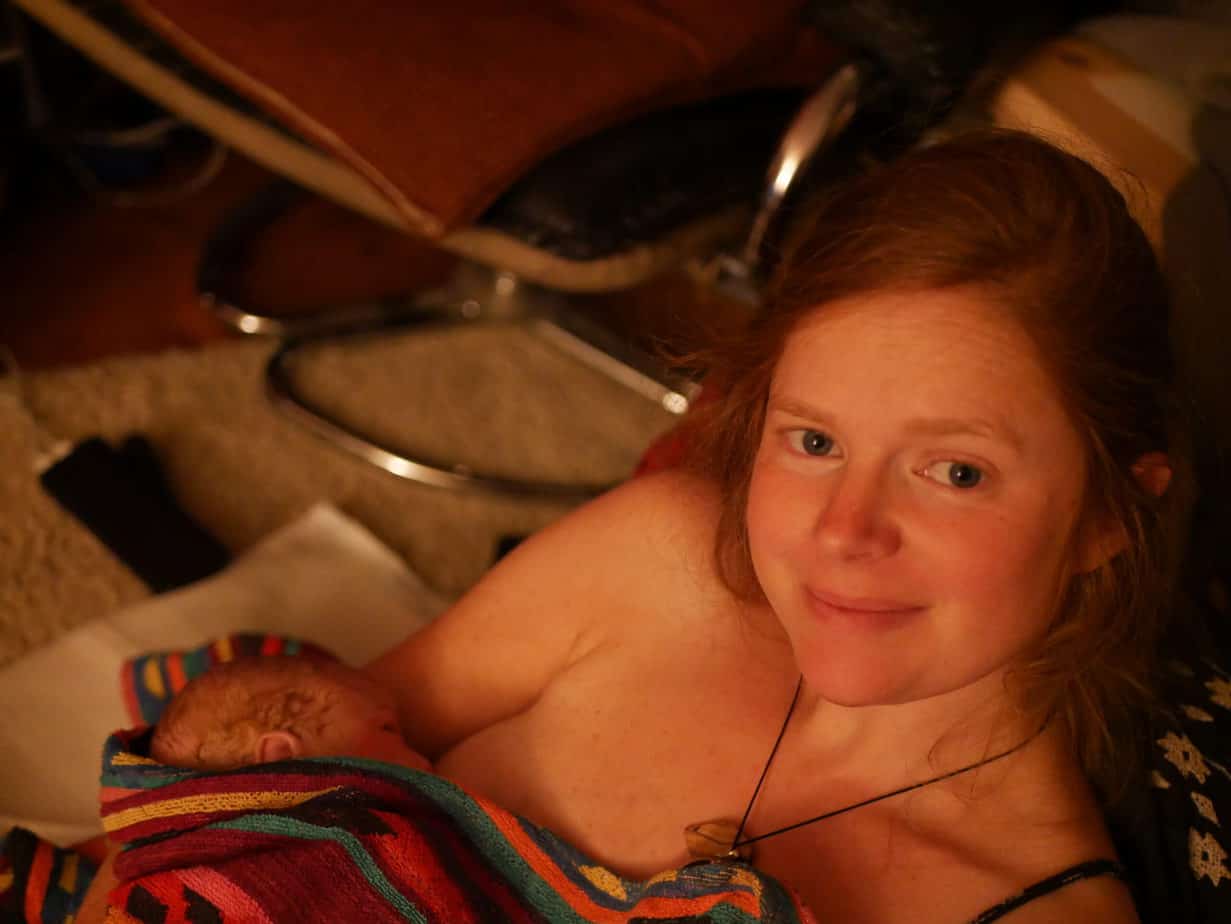Factsheet – Born before the arrival (BBA) of a midwife.
Kay King
Co-Project Lead for All4birth and Doula
@kayhollyking
Summary
You may have chosen to have your baby at home, or gone into labour and not had the time to make it to your planned birth centre or hospital, and then give birth to your baby prior to the arrival of a midwife or paramedic. What happens when you birth your baby without the presence of a midwife or medical professional?
This factsheet provides information about the circumstance of a baby or babies being born before the arrival (BBA) of a midwife or medical professional. Different from a ‘freebirth’ in which you plan to give birth unattended/ unassisted, a birth before the arrival of a midwife is usually unplanned and is likely to have occurred due to the speed at which your labour and birth have taken place or because of a short second stage of labour. It may also have occurred due to the other birth commitments or travel circumstances of the midwives due to attend your birth. This factsheet will provide you with practical advice and information on what to do in the unplanned event of a birth before the arrival of a midwife.
What we know
All labours vary in duration and the time between your first noticeable contraction and the second stage of labour will vary from woman to woman. In second or subsequent labours the length of time between the start of established labour and being fully dilated is usually shorter (around 5 hours) than in a first labour.1
Birth that happens away from a hospital or birth centre setting, prior to the arrival of a midwife is referred to as born before arrival (BBA). This is not a planned unassisted birth but rather a birth that occurs prior to the planned arrival of a midwife. Birth before the arrival of a midwife is associated with multiparity (more than one birth) and previous short second stage of labour.2
Each NHS trust will have its own clinical guidance for the management of born before arrival births. Guidelines are likely to detail the trusts recommendations on whether women are required to transfer to hospital after the birth or can stay at home. Usually the clinical guidance is that in the event of a born before arrival birth of an unplanned homebirth or un-booked woman that a hospital transfer is recommended, whereas a woman who is booked to have a home birth and known to the service, or who is found to be low-risk and experiencing no complications when the midwife arrives and is happy to stay at home will be able to proceed as if it was a planned home birth and remain at home.3
Born before arrival births tend to also be associated with labour that is less painful with less frequent contractions and later spontaneous rupture of membranes than other labours. 2 Without some of these signals that we have come to associate with labour it may be difficult to identify the stage of labour that you are in and this may be one of the reasons that a midwife is not called in enough time to attend the labour and birth.
Birth before the arrival of a midwife is sometimes also described as an emergency home birth. Precipitate labour is the medical term for fast labour and describes labour in which the baby is born within 3 hours of commencement of regular contractions.4 As this is one of the leading reasons for BBA or emergency home births it is useful to look at the statistics of precipitate labour. For every 100 natural onset labours around 2 of these are documented as precipitate labour.5
Whilst it may be a commonly debated concern for parents planning to have a home birth for a second or subsequent labour the likelihood of a BBA is minimal. You may have the support of a birth partner or doula to assist you with your birth, remember that they are not qualified to undertake the medical role of a qualified midwife or paramedic and should not undertake any clinical or medical procedures, checks or assessments in the absence of a midwife. It will be helpful for your support team to document the timings of significant events in your labour and birth in the absence of a midwife, as these are likely to be used as the official record of time of birth.
Clinical guidance across all NHS trusts is that after a BBA birth a midwife should attend to proceed with caring for the woman and baby. In the absence of an available midwife a paramedic will be called to attend, this is likely to be accompanied with a recommendation for a transfer to hospital.
What we don’t know
Whilst individual trusts will document the numbers of BBA births that occur across a year, there is not currently any available data on the national statistics for BBA births in the UK and it is therefore not possible to give a national picture of the likelihood of the occurrence, which will vary by area based on the statistics for planned home births and home birth options for women.
There is no little data available on the variation of reasons for BBA births and it is therefore not possible to accurately comment on the occurrence of this type of birth circumstance for reasons other than precipitate labour. Information such as the availability of home birth midwives at the time of a call to a home birth and the travel time between one duty and the next is not recorded nationally and will vary based on home birth service demand and the timings of individual labour.
Mothers and families: how to use the evidence
- Whilst BBA births do occur, they are uncommon. Try not to worry about the likelihood of a BBA and ensure that you communicate to your midwife if you have had previous fast labours or if the risk of no midwife present is a fear that you have related to your birth plan.
- You can call the number you have been given for your home birth midwife at any stage of your labour and to avoid a BBA it is a good idea to give the midwifery team a ‘heads up’ when labour starts. You do not need them to attend immediately but allowing them time to prepare will help to avoid a BBA.
- If you suspect that you might have a precipitate labour try to read about how to stay calm and present in your labour in order to avoid any unnecessary stress for yourself or your birthing partner at this important time.
- Don’t try to delay your labour if your midwife has not arrived and you begin to enter the second stage. Your body knows exactly what to do and you can follow the natural lead of your body’s cues to guild you calmly through your birth. Attempting to delay the arrival of your baby is likely to cause you more stress and panic so tune into the rhythm of your body and allow your baby to come in their own time.
- If you suspect any medical emergency or if you have been advised by your care providers over the phone to contact the emergency services, call 999. By calling 999 you will be inviting paramedics into your birth environment, if this is a medical emergency and you have reason to feel that you need to go to hospital then this is absolutely advised. If you have been informed by your midwife that they are on route and you are confident that the birth is happening without additional medical emergencies then you can await the arrival of your midwife or ask them to call for an ambulance if you are required to continue labour or supporting labour.
- Whilst you may ask your doula or birth companion to assist you in staying calm, remember that they are not qualified to provide any medical advice in the absence of a midwife. They may be more familiar with supporting fast labours and you can certainly rely on them to keep you calm and undertake all of the actions required to contact your care providers for updates or emergency support.
- As a lay supporter, partner, or other parent in a BBA birth, try to remain calm. Other than making the call to the care provider the most important thing that you can do is act to reassure and stay present with the birthing woman or person you are supporting. It is understandable that you may feel concerned but be reassured that medical support, in the form of a paramedic or midwife, will be with you very soon and you staying calm and supportive is the most helpful thing that you can do.
Midwives and birth workers: how to use the evidence
- As midwives it is essential that we ensure that the women we support, and where present, their birth companions or doulas are aware of who to call to inform of the start of labour.
- Doulas and birth keepers are not qualified midwives and in the absence of a qualified care provider they should not undertake any role that is outside of their duties and in line with the code of conduct that they subscribe to through professional membership.
- When a woman is concerned about precipitate labour her concerns should be listened to and can be documented in her maternity notes in order to ensure that she is given the reassurance required to remain calm throughout her labour.
- Where a home birth is the birth preference of a woman this should be supported unless there is a medical reason that suggests that an alternative environment would pose less risk to the woman or baby.
Links to other resources
 Guidelines
Guidelines
NHS Trust Guidance for the management of home birth ( www.meht.nhs.uk )
Better Births – Improving outcomes of maternity services in England National Maternity Review (https://www.england.nhs.uk/wp-content/uploads/2016/02/national-maternity-review-report.pdf)
References
1: NHS England (2020) What Happens During Labour and Birth [Online] Available at: https://www.nhs.uk/conditions/pregnancy-and-baby/what-happens-during-labour-and-birth/ (Accessed Nov 2020)
2: British Journal of Midwifery (2013) Birth before arrival at delivery suite: Associations and consequences: Available at: www.magonlinelibrary.com/doi/pdf/10.12968/bjom.2006.14.4.20786 (Accessed Nov 2020)
3: NHS Trust Guidance for the management of home birth (2019) Available at: www.meht.nhs.uk (Accessed Nov 2020)
4: Journal of Clinical medicine Research (Shunji Suzuki, 2015) Clinical Significance of Precipitous Labour: Available at www.ncbi.nlm.nih.gov/pmc/articles/PMC4285060/ (Accessed Nov 2020)
5: NCCWCH. 2008. Induction of labour. National Collaborating Centre for Women’s and Children’s Health, Clinical guideline. London: RCOG Press. www.nice.org.uk (Accessed Nov 2020)








